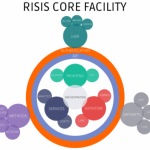According to European Commission, Research Infrastructures (RIs) are facilities that provide resources and services for research communities to conduct research and foster innovation.
“They can be used beyond research, for education or public services and they may be single-sited, distributed, or virtual”, they said. “They include major scientific equipment or sets of instruments, collections, archives or scientific data, computing systems and communication networks, and any other research and innovation infrastructure of a unique nature which is open to external users”.
The nature of a Research Infrastructure is thus relevant to all of us: they are not created as an end in themselves, but in order to determinate a precious change in the society. They are a powerful tool helping to remove science barriers: a ‘place’ where researchers can find the best instruments or libraries, a ‘place’ where develop new knowledge and new technologies. They support common interests and tend to encourage international collaboration.
RISIS (Research Infrastructure for Science and Innovation policy Studies) is part of the wide space given to RIs by the Horizon 2020 Program. With its 13 tested datasets and other 4 in the pipeline, RISIS wants to promote further integration and the open research data infrastructures in the field of science, technology and innovation, including social innovation.
RISIS community is dealing with sensitive issues as social innovation, non-technological innovation, the role of PhDs in society, and portfolios of public funding instruments, studying both universities and firms, in order to reduce asymmetries in actors producing new knowledge, in places where knowledge is generated, and in themes addressed.






